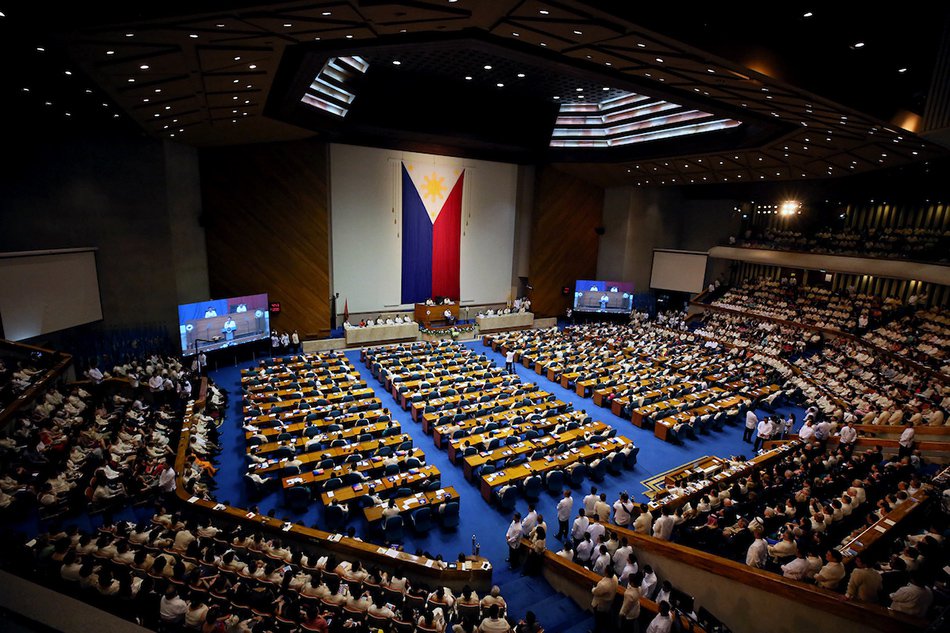
MANILA — The House of Representatives on Tuesday began deliberations on several bills proposing the creation of a Department of Overseas Filipino Workers (OFWs) — one of the priority measures highlighted by President Rodrigo Duterte during his fourth State of the Nation Address.
The House Committees on Government Reorganization and Overseas Workers Affairs tackled the 31 bills filed to create the new department.
Batangas 5th District Rep. Mario Vittorio Mariño, the chair of the House Committee on Government Reorganization, said the primordial rationale of the DOFW bills is to protect and promote the rights of all Filipinos living and working overseas, ensuring their safety, health, and freedom from abuses, as well as their development and general well-being.
“The bills also aim to secure and broaden the socio-economic opportunities of overseas Filipinos within the national borders of the country,” he added.
The lawmaker assured that the provisions of the bill will be carefully and thoroughly deliberated upon by the joint panel.
“We will not rush it as to the contents. We will make sure that this bill is well-prepared when we submit it to the Senate,” Mariño said.
This was also assured by TUCP party-list Rep. Raymond Democrito Mendoza, the chair of the House Committee on Overseas Workers Affairs.
“We need to do this right, para sa Bagong Bayani ng Pilipinas (for the modern heroes of the Philippines),” he said as he called on his fellow lawmakers for their support and cooperation.
“There are 30 bills before this committee and it is a difficult task before us, but what is this in comparison to what our OFWs experience overseas? We cannot fail our Bagong Bayani, so I hope for your cooperation in ensuring the fulfillment of the President’s vision and the passage of the law creating this new department,” Mendoza said.
Meanwhile, Mendoza pointed out that among the contentious issues they will tackle revolves around the several government agencies dealing with OFW concerns.
He said some of the bills call for the abolition of certain government agencies, other proposed to transfer these offices to the new department while others prefer to retain these offices and just attach them to the new department.
“We need to address whether in the proposed department, we are simply transferring all migration-related agencies, offices and bureaus to this new department with no significant changes in their core functions, especially those of the Philippine Overseas Employment Administration (POEA) and the Overseas Workers Welfare Administration (OWWA), which are the major agencies that OFWs and their families have to deal with,” he said.
“Further debate must be had on how the existing agencies will be dealt with as a consequence so that what we construct encompasses all facets of what OFWs face,” Mendoza said.
DOFW bill gets House leaders’ support
The creation of a Department of OFW has the support of the House leadership, with Speaker Alan Peter Cayetano and House Majority Leader Martin Romualdez, who are also among the authors of the proposed bills.
Cayetano said the proposed department would become the focal agency, which will deal with all the affairs and concerns of OFWs.
He noted that in the current setup, the Department of Labor and Employment (DOLE) and the Department of Foreign Affairs (DFA) have parallel and sometimes overlapping functions in dealing with OFW concerns.
“The difference is – this time around, number one, meron kang (you have) one person in the Cabinet. So meron maho-hold accountable ang Presidente na isang tao lang (there will be only one person that the President will hold accountable),” he said.
“Secondly, there’s only one department that you will go to, although they will coordinate with the other agencies,” Cayetano said.
Cayetano said they plan to start plenary deliberations on the bill by the second week of November and have the proposed measure signed by the President before the end of the year.
The Speaker said the House has its work cut out in rationalizing the functions of the different agencies under one department.
“Marami talagang issues at maraming government agencies na may mga tanong. So to rationalize all of its functions, and to be able to explain to people bakit mas effective kung merong Department of Overseas Filipino Workers, that would be the challenge,” Cayetano said.
(There really are many issues and many government agencies have their concerns. So to rationalize all of its functions, and to be able to explain to people why it is more effective to have a Department of Overseas Filipino Workers, that would be the challenge.)
Romualdez echoed Cayetano’s views.
The House Majority Leader said the absence of a single agency to address foreign employment concerns has made it difficult for the government to focus on the needs and demands of “foreign Filipino employment, in general, and of OFWs, in particular.”
“Despite the existence of agencies to protect Filipinos abroad, numerous problems and challenges confront OFWs and their families: illegal recruitment, employer abuse, sexual abuse, inadequate benefits, inefficient and ineffective delivery of services to OFWs, lack of representation of the OFW interests in the agencies that are supposed to protect and promote their rights, among others,” he said.
“Hence, there is a pressing need to establish an agency that would manage, harmonize, and strengthen existing policies and programs to address the needs of foreign Filipino employment. We support the immediate passage of the proposed Department of OFWs,” Romualdez said.